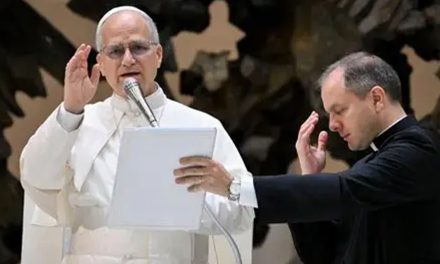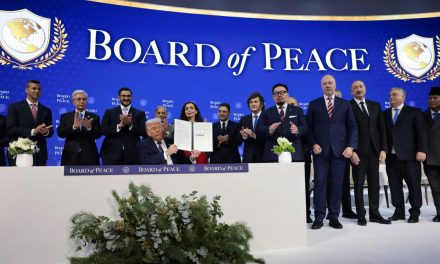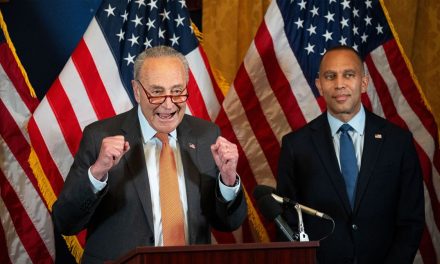
HORIST: Will the Democrats have a brokered convention?
The possibility seems to be increasing that the Democrats might have to pick their presidential and vice-presidential nominees in the proverbial “smoke-filled rooms” at their national convention. Although there will be no smoke in the room these days, there will be plenty of heat as the nominations are brokered like pork bellies on the Mercantile Exchange.
More and more, the media pundits are putting that possibility into their political calculators. What was once considered unlikely – a thing of the past – has entered the realm of possibility. And with the passage of each primary, that possibility increases.
Some already see it as a probability. They say, “Do the math.” People as diverse as FOX News’ analysist Karl Rove and CNN’s numbers cruncher Harry Enten are offering up similar assessments.
So, let’s do the math.
A candidate for the presidential nomination needs just short of 2000 delegates to win ON THE FIRST BALLOT. I emphases that last phrase because if no one attains that winning number heading into the convention, the so-called super delegates can vote on subsequent ballots. If that sounds like a potential disaster, keep in mind that these rules were the creation of the same folks responsible for the Iowa caucuses.
According to Democrat convention rules, delegates from each state are allotted proportionately to the candidates who get at least 15 percent of the vote – sort of. Subtle variations in the rules are what enabled Mayor Pete Buttigieg to garner more delegates from Iowa even though Senator Bernie Sanders won the majority vote in the state.
The system works if there was one – or maybe two at most – dominant candidates who exceed the 15 percent threshold. They would divide up the delegates and the leading candidate would likely go into the convention with the requisite number of delegates to win on the first ballot.
But when there are four or five candidates topping the 15 percent mark in one state or another, it becomes much more difficult for any one candidate to get a majority of delegates in advance of the convention.
We see the problem already developing in Iowa. While Sanders won the popular vote, he only gets 12 of the 41 pledged delegates. Buttigieg gets 14. The rest go to Senator Elizabeth Warren (8), former Vice President Joe Biden (6) and Senator Amy Klobuchar (1). New Hampshire awarded nine delegates to both Sanders and Buttigieg and six to Klobuchar.
Since different candidates will take the win, place and show positions in different states, it is even more difficult for a frontrunner to sweep up delegates. Sanders is expected to lead the Nevada caucuses, but Biden – who trailed in Iowa and New Hampshire – is likely to move into second or third place.
That means that after Nevada and South Carolina – where Biden could come in first – there will be a frontrunner, but not a majority candidate. That means that five candidates with an ability to pick up more delegates will be in play at least through Super Tuesday.
But wait! Just when Democrats need to reduce the size of the field to avoid a brokered convention, there will be a sixth contender – former New York Mayor Michael Bloomberg. While he will not have earned a single delegate at the time of the March 3rd 14-state Super Tuesday primaries, he is spending hundreds of millions of dollars in all these states in a belief that he can win a large number of delegates – and no one is saying he cannot.
It is also expected that Sanders, Biden, Buttigieg, Warren and Klobuchar will win all the delegates from the home states of Vermont, Delaware, Indiana, Massachusetts and Minnesota respectively. This just spreads more delegates over a larger base.
If the frontrunner coming out of Super Tuesday does not have a majority of the pledged delegates, it is almost certain that there will be a brokered convention because he or she would have to run the table in all the remaining primaries. In a world of reason and common sense, one might expect the frontrunner to eventually win the nomination at the convention, but that may not be the case. Reason and common sense are not the characteristics of a brokered convention.
Let us assume that Sanders goes into the convention as the frontrunner. Prior to the first ballot, he will be trying to get one of his opponents to drop and free up their delegates. Most likely, Sanders would be putting the pressure on Warren – maybe trading for a pick as the vice-presidential candidate.
But if Sanders does not have enough delegates to win on the first ballot, his chances will diminish. That is when the 775 super delegates will be able to vote on subsequent ballots – and they are “the establishment” Democrats and very anti-Sanders.
If, at that point, Sanders loses out to a Biden, Buttigieg, Klobuchar or Bloomberg, all Hell will break loose. Sanders’ radical base will not sing Kumbaya with the Democrat establishment. This will be the second time that the Vermont socialist has fallen short of a presidential nomination – and his followers will see only more skullduggery by the folks at the Democratic National Committee.
We have to remember that brokered conventions are highly emotional events with all sorts of deals being made behind the scenes. Angry delegates often walk out – if not breaking out into fisticuffs on the floor of the convention. Demonstrators assemble outside the venue.
To gain a historical perspective, think of the 1968 convention in Chicago, which nominated former Vice President Hubert Humphrey as the establishment candidate – even though he never ran in a single primary. The radical left was represented by Minnesota Senator Eugene McCarthy and South Dakota Senator George McGovern. The hostility between the establishment and the radicals in the Democratic Party was so severe that riots broke out on the streets of Chicago. The city’s mayor, Richard J. Daley, vented his anger at Connecticut Senator Abraham Ribicoff as he spoke from the podium – yelling, “F**k you, you Jew son of a bitch,” according to professional lipreaders.
In a nation where there seems to be little room for agreement between parties and factions, there is a growing mutual belief that a brokered convention is very possible – and that it would be a total disaster for an already fractured Democratic Party. Bring it on!
So, there ‘tis.




























In other words this is just another example of how screwed up the present day Democratic Party is. Not even worthy of being called super idiots.
It seems the Democrats are not democratic. How not surprising.